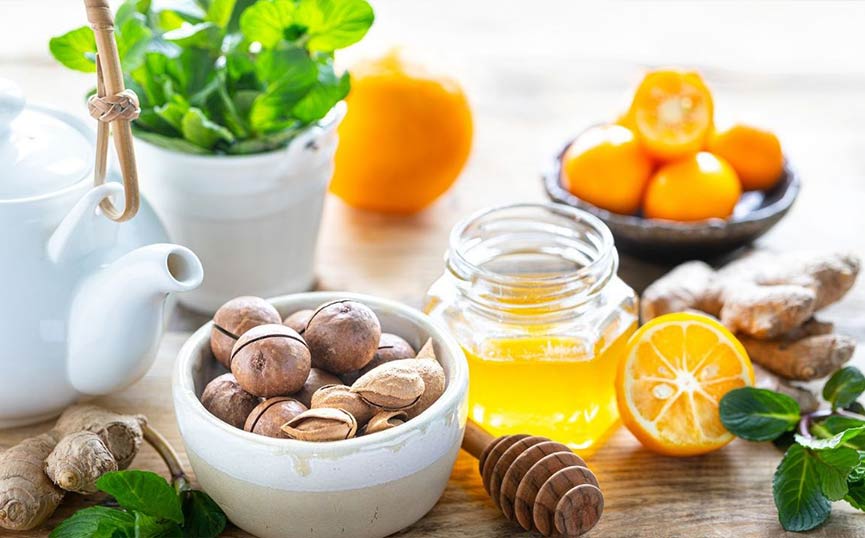The immune system
The immune system is the main defence system of the human body, consisting of many different functional units. Its job is to produce antibodies and cells that fight dangerous and harmful foreign elements. The body encounters such undesirable substances every day. It is thanks to our immune system that we ourselves rarely notice this constant.

We can differentiate innate and adaptive immunity.
Innate immunity refers to non-specific defence mechanisms. It’s our body’s first line of defence and fights off pathogens before we know it. Think of them as a security guards, screening the company before letting in those waiting outside the door. In this way, they keep out unwanted elements that could attack the organisation. Think of the physical limits of our skin.
If a pathogen does manage to get past the first line of defence, adaptive immunity kicks in, which is much more complex and targeted. Adaptive immunity is a response to antigens. Antigens, typically proteinaceous substances, are located on the surface of pathogens. Because they are unique, it is easier for the body to recognise which pathogen it is up against and fight them with special cells. These are the antibodies that white blood cells produce in response to a particular antigen. So the next time our body is confronted with the same pathogen, our immune system recognises and remembers what response to make.
So we can see that our immune system is a very well functioning unit. We ourselves can do a lot to support it. Hydration and balanced diet, which provides the body with the nutrients, vitamins and minerals it needs, are essential for proper functioning. We need to introduce regular exercise into our daily lives, as well as getting enough sleep and managing stress.

But what are the things to look out for when it comes to supporting your immune system?
Vitamin C
An antioxidant vitamin that plays a role in protecting against pathogens and stimulates white blood cell function. Contributes to the protection of cells against oxidative stress, reducing fatigue and tiredness. Good sources of vitamin C are citrus fruits, rosehips, sea buckthorn, parsley, broccoli, kiwi fruit.
Vitamin D
It contributes to the normal functioning of the immune system, as all our cells have vitamin D receptors, so it plays a prominent role in regulating immune processes, inhibiting the development of pathological immune responses at several points. During the winter months, particular attention should be paid to its intake, as it is produced in the body when exposed to UV-B radiation from the sun.

Zinc
Zinc is a mineral that plays an important role in the normal functioning of many functions in our body. It is involved in metabolic processes, contributes to the normal functioning of the immune system and protects cells against oxidative stress. Natural sources include meat, fish, poultry, cereals and dairy products. The amount of zinc absorbed is influenced by the amount of protein in the diet, so vegetarians and vegans should pay close attention to their intake.
Vitamin E
Vitamin E acts as a powerful antioxidant, reduces the risk of infections, plays a role in reducing oxidative stress and supports immune function. Best sources are various oils (e.g. olive, pumpkin seed), nuts, avocados, liver, eggs.
If you want to prevent illnesses such as colds and other viral diseases, pay attention to what you put in your body during the winter.
The importance of a healthy diet and adequate fluid intake cannot be over-emphasised.

